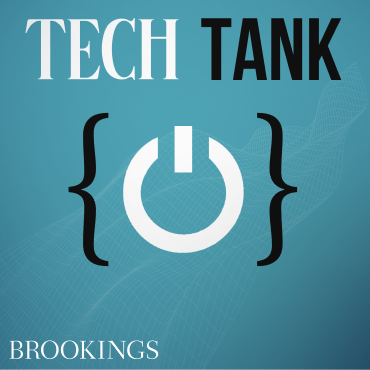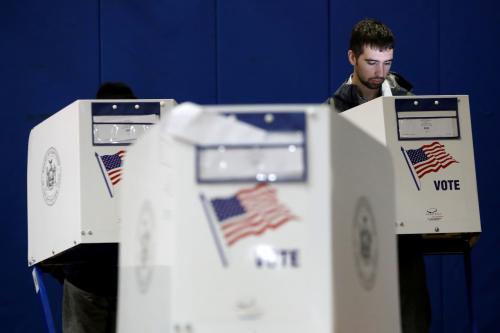TechTank, a biweekly podcast from the Center for Technology Innovation at Brookings, explores today’s most consequential technology issues. Moderators Nicol Turner Lee and Darrell West speak with experts and policymakers to share data, ideas, and policy solutions that address the challenges of our digital world.
At its 2023 annual conference, the Family Online Safety Institute (FOSI) presented findings from a new report titled, “Generative AI: Emerging Habits, Hopes and Fears,” which offered comparisons into the awareness and usage of generative AI (GenAI) among parents and teens in the United States, Germany, and Japan. The report, which was a collaboration between FOSI and research consultants at Kantar, adds valuable insights to the ongoing social and ethical discourse surrounding the proliferation of GenAI models, like ChatGPT and Bard. The survey also delved into cultural and generational responses, hopes, and concerns regarding GenAI, and concluded that parents and teens were much more aligned in what they know about the technology, as well as how they use it. Key findings from the report indicate that teens and parents show a balanced awareness of GenAI, with teens acknowledging their parents’ perceived understanding. GenAI is also increasingly becoming widespread within various sectors of society. The report emphasizes that the recognition of GenAI as increasingly integral to daily life makes it easier for parents and teens to be in better alignment in the United States. In comparison with Germany and Japan, hesitation about the technology abounds, and the government has been playing a greater role in its use among teens. Given the dearth of information on generative AI and its evolving capabilities, the FOSI report provides helpful information about how policymakers can craft useful protections around its use. One point that stood out in the report is the utility of GenAI for teens’ management of mental health, which should guide more positive responses to the technology’s deployment and adoption. To balance such revelations, the report also shared recommendations for public policy recommendations and the role of industry in maintaining GenAI as a productive resource that could flourish from greater teen and parental involvement. As generative AI is showing up everywhere—in jobs, schools, and day-to-day tasks—there is a need for findings and recommendations, such as those in this report, to start a more evidenced-based dialogue on its use. On this episode of the TechTank podcast, co-host Nicol Turner Lee, senior fellow and director of the Center for Technology Innovation at Brookings, is joined by Stephen Balkam, founder and CEO of the Family Online Safety Institute, and Kara Sundby, senior director at Kantar and one of the co-authors of the new report. Together, they get into how generative AI is shaping the dynamics between parents and teens, its applications, and the fears and hopes that accompany this technological evolution. You can listen to the episode and subscribe to the TechTank podcast on Apple, Spotify, or Acast.
The Brookings Institution is committed to quality, independence, and impact.
We are supported by a diverse array of funders. In line with our values and policies, each Brookings publication represents the sole views of its author(s).










Commentary
PodcastGenerative AI, parents, and teens | The TechTank Podcast
Listen on
November 20, 2023